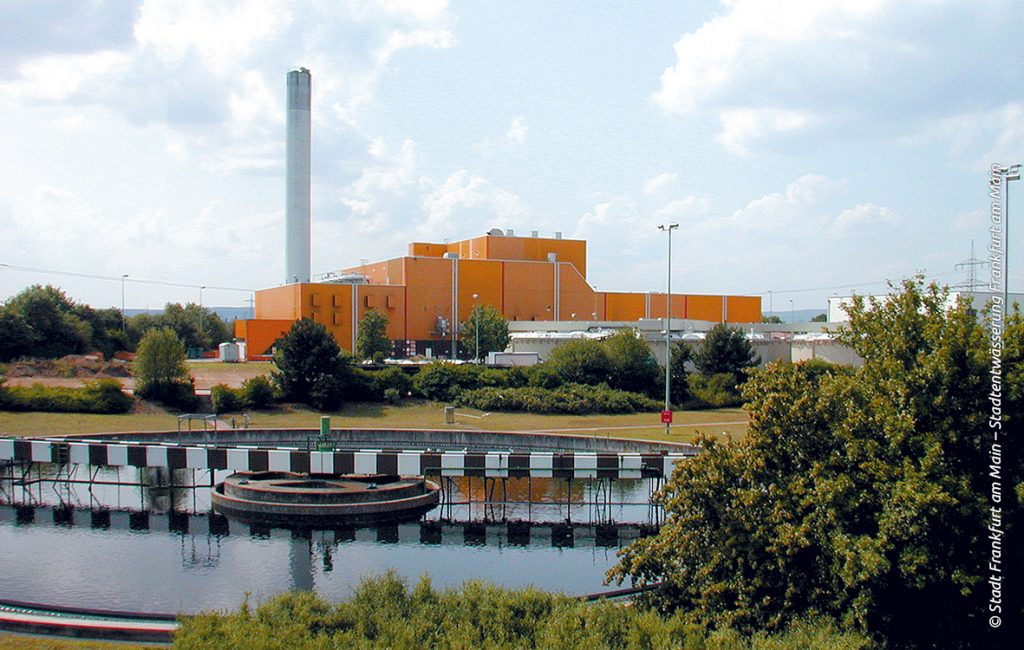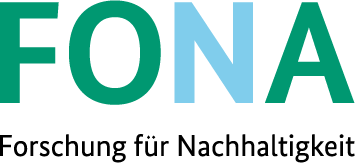Coordination
Technische Universität Darmstadt, Institut IWAR Fachgebiet Abwassertechnik
Franziska-Braun-Straße 7
64287 Darmstadt
Project management
Prof. Dr.-Ing. Markus Engelhart
Tel. +49 6151 16 20301
m.engelhart@iwar.tu-darmstadt.de
Partner institutions
- Technische Universität Darmstadt, Institut IWAR, Fachgebiet Stoffstrommanagement und Ressourcenwirtschaft, Darmstadt
- TVM Thermische Verwertung Mainz GmbH, Mainz
- Stadt Frankfurt am Main, Stadtentwässerung Frankfurt am Main
- Infraserv GmbH & Co. Höchst KG, Frankfurt am Main
- Becker Büttner Held Rechtsanwälte Wirtschaftsprüfer Steuerberater PartGmbB, Berlin
- Glatt Ingenieurtechnik GmbH, Weimar
- Fraunhofer-Gesellschaft, Fraunhofer-Einrichtung für Wertstoffkreisläufe und Ressourcenstrategie IWKS, Alzenau
- Entega Abwasserreinigung GmbH & Co. KG, Darmstadt
- Abwasserverband Langen/Egelsbach/Erzhausen, Langen
Funding period
01.07.2020 – 30.06.2026
Webseite
Projekt sheet
RePhoRM
Regional phosphorus recycling in the Rhine-Main area under consideration of industrial and agricultural material cycles
Abstract
Within the framework of the joint project RePhoRM, a technological and organizational solution for phosphorus recycling in the Rhine-Main area is being developed and implemented. Based on the mono-sludge incineration capacity and its potential expansion in the Frankfurt Rhine Main metropolitan region, a cooperative phosphorus recovery from sewage sludge ash is to be implemented. In accordance with the Hessian resource protection strategy, a fertilizer granulate is produced as a phosphorus recyclate which can be used directly to close the regional nutrient cycle in agriculture. When implementing phosphorus recycling, the particular interests of the partners in the network must be taken into account with regard to the technology for phosphorus recovery and the formation of a phosphorus recycling network. From a technological point of view, the aim is to remove heavy metals from the sewage sludge ash before the actual phosphorus recovery. Within the framework of the project, the PHOS4green technology to produce fertilizer granulate is therefore further developed by a heavy metal removal of the (input) sewage sludge ash and the process is implemented on a large scale in Industriepark Höchst. In addition to an economic and ecological study of phosphorus recycling, the integrated solution will be legally assessed and organised.
Aim
The overall objectives of the RePhoRM project are:
- Large-scale implementation of the further developed PHOS4green technology for P-recovery from sewage sludge ash in Industriepark Höchst.
- Inter-state collaborative solution for P-recycling in the Frankfurt Rhine Main metropolitan region, taking into account the key operators of mono-sludge incineration and wastewater treatment plants.
Focus of work
- Quantitative and qualitative recording and balancing of the sewage sludge ash flows in the context of a superordinate integrated solution
- Recording and balancing of heavy metal inputs into the sewerage system and the wastewater treatment plants of the Frankfurt am Main municipal wastewater treatment plant
- Development of possible recommendations for action to minimize the input of heavy metals into the municipal wastewater
- Investigation of the dissolution and separation of heavy metals from sewage sludge ashes in laboratory and demonstration scale
- Optimization of spray granulation to the changed conditions caused by the removal of heavy metals
- Evaluation of the fertilizer conformity of the obtained fertilizer granulate against the background of recycling aspects and acceptance in agriculture
- Accompanying life cycle assessment of the technical development for the removal of heavy metals and life cycle assessment of phosphorus recycling
- Development of a legal and organizational framework for the design of a phosphorus recycling network
- Economic analysis of the integrated solution and preparation of a business case
- Large-scale implementation of Phosphorus recycling as an integrated solution in the Rhein-Main area
Work package

© Stadt Frankfurt am Main – Stadtentwässerung Frankfurt am Main
Contact
M.Eng. Peter Kuhn (AP 1.1, 1.2), Institut IWAR Fachgebiet Abwassertechnik der TU Darmstadt, Franziska-Braun-Straße 7, 64287 Darmstadt, p.kuhn@iwar.tu-darmstadt.de
Dr.-Ing. Rolf Götz (AP 1.3), Stadt Frankfurt am Main – Stadtentwässerung Frankfurt am Main, Goldsteinstraße 160, 60528 Frankfurt am Main, rolf.goetz@stadt-frankfurt.de
Projekt partners
Thermische Verwertung Mainz GmbH, Stadtentwässerung Frankfurt am Main, Infraserv GmbH & Co. Höchst KG, Entega Abwasserreinigung GmbH & Co. KG, Abwasserverband Langen/Egelsbach/Erzhausen
Abstract
The material flows in the planned integrated solution are recorded and balanced qualitatively and quantitatively. This balance ultimately serves as a dimensioning basis for the implementation of P-recovery. In addition, the dynamic disposal situation caused by different ash deliveries and qualities is to be recorded in order to identify the necessary flexibility and efficiency of the P recycling process (WP 1.1, 1.2). Parallel to this, input paths of the relevant heavy metals in conurbations are to be investigated (WP 1.3). Recommendations for action to reduce these inputs will be developed and, if necessary, included in the assessment of P recycling in an ecological balance sheet.

© Glatt Ingenieurtechnik GmbH
Contact
M.Eng. Peter Kuhn (AP 2.1, 2.2), Institut IWAR Fachgebiet Abwassertechnik der TU Darmstadt, Franziska-Braun-Straße 7, 64287 Darmstadt, p.kuhn@iwar.tu-darmstadt.de
Björn Krix (AP 2.3), Infraserv GmbH & Co. Höchst KG, Industriepark Höchst, 65926 Frankfurt am Main, Bjoern.Krix@Infraserv.com
Projekt partners
Glatt Ingenieurtechnik GmbH, TU Darmstadt Institut IWAR Fachgebiet Stoffstrommanagement und Ressourcenwirtschaft
Abstract
The PHOS4green process completely refines the sewage sludge ash added to the process into a phosphorous-rich fertilizer with the lowest possible number of by-products or residues. Heavy metal removal has not yet been possible with this process. The challenge within the scope of the project is to remove the heavy metals relevant under fertilizer legislation from the CRSA in a targeted manner and at the same time to keep the accumulation of residues and the associated recycling and disposal costs as low as possible. The ash components remaining after the removal of heavy metals are to be further refined into a fertilizer. WP 2 is divided into three main areas of work for the differentiated investigation, adaptation and optimization of the process engineering modules for phosphorus recovery. WP 2.1 and 2.2 differ significantly in the scale to be investigated. Thus, the basic suitability of heavy metal removal will be investigated on a laboratory scale (WP 2.1) and on a semi-industrial scale (WP 2.2) the dimensioning basis and optimization for the large-scale implementation planned in WP 2.3 will be investigated.
Contact
Björn Krix (AP 3.1), Infraserv GmbH & Co. Höchst KG, Industriepark Höchst, 65926 Frankfurt am Main, Bjoern.Krix@Infraserv.com
Dr. Vanessa Zeller (AP 3.2), Institut IWAR Fachgebiet Stoffstrommanagement und Ressourcenwirtschaft der TU Darmstadt, Franziska-Braun-Straße 7, 64287 Darmstadt, v.zeller@iwar.tu-darmstadt.de
Frank Licht (AP 3.3), Becker Büttner Held Rechtsanwälte Wirtschaftsprüfer Steuerberater PartGmbB, Agrippinawerft 26-30, 50678 Köln, Frank.Licht@bbh-online.de
Projekt partners
TU Darmstadt Institut IWAR Fachgebiet Abwassertechnik, Glatt Ingenieurtechnik GmbH, Fraunhofer-Einrichtung für Wertstoffkreisläufe und Ressourcenstrategie IWKS
Abstract
In parallel to the technological questions in WP 2, ecological (WP 3.2) and economic (WP 3.3) aspects for the planned Phosphorus recycling as well as for the integration of heavy metal depletion are considered in WP 3. The evaluation also includes the measures developed in WP 1 for the reduction of heavy metal input into the municipal wastewater and considers the utilization of the produced recyclate and the resulting residual materials (WP 3.1).
Contact
Beate Kramer, Becker Büttner Held Rechtsanwälte Wirtschaftsprüfer Steuerberater PartGmbB, Magazinstraße 15-16, 10179 Berlin, Beate.Kramer@bbh-online.de
Projek tpartners
Infraserv GmbH & Co. Höchst KG, Thermische Verwertung Mainz GmbH, Stadt Frankfurt am Main – Stadtentwässerung Frankfurt am Main, Entega Abwasserreinigung GmbH & Co. KG, Abwasserverband Langen/Egelsbach/Erzhausen, TU Darmstadt Institut IWAR Fachgebiet Abwassertechnik
Abstract
In addition to the general legal issues concerning Phosphorus recycling, the organizational form of the network must be worked out. Special challenges arise from the different organizational forms of the project partners, the pilot character of the project regarding phosphorus recovery as well as the intended cooperation across federal states. The aim is to create a network that creates an appropriate balance of interests between the partners financed by fees and the involved companies from the recycling industry.
Contact
Beate Kramer (AP T.1), Becker Büttner Held Rechtsanwälte Wirtschaftsprüfer Steuerberater PartGmbB, Magazinstraße 15-16, 10179 Berlin, Beate.Kramer@bbh-online.de
Jan Kirchhof (AP T.2), Glatt Ingenieurtechnik GmbH, Nordstraße 12, 99427 Weimar, jan.kirchhof@glatt.com
Projekt partners
TU Darmstadt Institut IWAR Fachgebiet Abwassertechnik, Infraserv GmbH & Co. Höchst KG
Abstract
On the basis of the developed joint solution for phosphorus recycling for the Rhine-Main area, the exemplarily determined results as well as the hurdles to be taken in the design of cooperation’s will be transferred in form of a guideline into a broadly applicable and practicable tool, which supports the preparation, design and realization of possible phosphorus recycling alliances (AP T.1). In addition, the results on the further developed PHOS4green technology are summarized and evaluated in a potential assessment with regard to the sewage sludge ashes that can now be used and the flexibility of the process with regard to potential limit value tightening (AP T.2).
Ways of exploitation
With the implementation of the concept of the joint project RePhoRM as a lighthouse project, the sustainable use of the resource phosphorus is strengthened for one of the most important metropolitan regions in Germany with already well-developed infrastructure for the mono-combustion of sewage sludge. RePhoRM strengthens the networking of the actors in the ash network through inter-municipal cooperation, so that all participants can directly use the results obtained.

